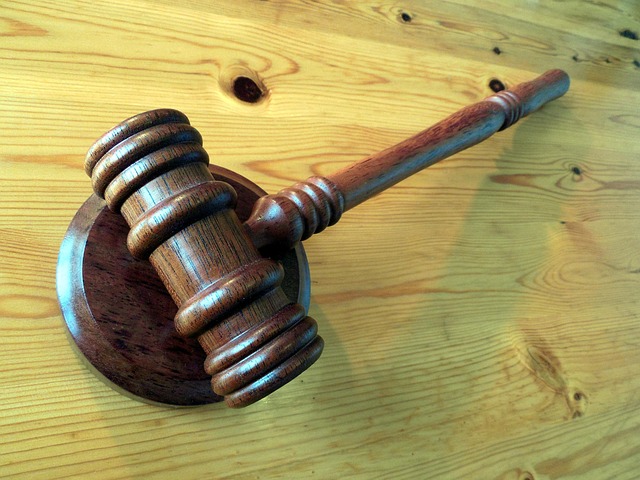RF Regulatory Agency (RFRA) investigations ensure compliance with RF standards, involving documentation reviews, equipment exams, and personnel interviews. Understanding Miranda Rights in Criminal Proceedings is vital as they protect individuals from self-incrimination, ensuring fairness. Invoking these rights can lead to charge dismissal, benefiting philanthropic and political communities involved in RF technologies. Post-investigation legal planning and understanding nuances are crucial for achieving favorable outcomes, emphasizing the importance of compliance and cooperation.
RF Regulatory Agency investigations play a crucial role in ensuring compliance with wireless communication standards. This article delves into the intricacies of these probes, focusing on key aspects such as understanding the investigative process, the application of Miranda Rights in RF cases, and navigating legal implications post-investigation. By exploring these elements, we provide valuable insights for stakeholders faced with potential regulatory scrutiny, emphasizing the importance of knowing one’s rights, especially in the context of Miranda Rights in criminal proceedings.
- Understanding RF Regulatory Agency Investigations
- Miranda Rights: Application in RF Probes
- Navigating Legal Implications Post-Investigation
Understanding RF Regulatory Agency Investigations

RF Regulatory Agency Investigations are crucial processes aimed at ensuring compliance with radio frequency (RF) standards and regulations. These investigations can have significant implications for businesses, especially those involved in wireless communication, broadcasting, and other RF-related industries. When a potential violation is suspected, regulatory agencies conduct thorough inquiries to verify adherence to laws and policies. The process involves reviewing documentation, examining equipment, and sometimes interviewing personnel to gather evidence.
During such investigations, it’s essential for individuals and entities to be aware of their rights, particularly those granted under the Miranda Rights in Criminal Proceedings. While these rights are traditionally associated with law enforcement in criminal cases, they can also offer protections during regulatory inquiries, especially when information-gathering methods may evoke concerns about potential criminal liability. For clients facing RF Regulatory Agency Investigations, whether accused of white collar and economic crimes or not, having a skilled legal representative who understands the nuances of these proceedings is vital for navigating the process successfully and achieving winning challenging defense verdicts.
Miranda Rights: Application in RF Probes

In the context of RF (Radio Frequency) regulatory agency investigations, understanding the application of Miranda Rights is crucial. Similar to their role in criminal proceedings, Miranda Rights inform individuals that they have the right to remain silent and that anything they say can be used against them in court. This is particularly relevant during RF probes where agencies may question individuals about potential violations of radio frequency regulations. Knowledge of these rights empowers individuals to protect themselves from self-incrimination, a principle essential for maintaining fairness within legal processes.
For his clients facing RF investigations, availing themselves of these rights can be pivotal in securing a complete dismissal of all charges. The concept, deeply rooted in criminal law, has trickled into regulatory contexts, ensuring that the rights of individuals are respected even in non-criminal settings. This safeguard is particularly valuable for philanthropic and political communities, where RF technologies play a significant role, allowing them to navigate investigations without compromising their principles or actions.
Navigating Legal Implications Post-Investigation

After an RF Regulatory Agency (RFRA) investigation, understanding the legal implications is paramount for individuals or organizations facing potential charges. The process can be complex, and one crucial aspect to consider is the application of Miranda Rights in criminal proceedings. These rights, ensuring due process, come into play when suspects are questioned by law enforcement. It’s essential to recognize that the legal journey doesn’t end with the investigation; it’s just one part of the all stages of the investigative and enforcement process.
For those involved in white-collar defense, navigating these post-investigation steps is an art. Achieving extraordinary results often lies in meticulous planning and understanding the law’s nuances. The goal is to protect rights while ensuring a fair and transparent process, demonstrating that compliance and cooperation can lead to favorable outcomes, even in challenging cases.
RF Regulatory Agency investigations, with their focus on ensuring compliance and public safety, play a pivotal role in the wireless communications landscape. By understanding the processes involved, from examining equipment and interviewing individuals (including the application of Miranda Rights in RF probes) to addressing legal implications post-investigation, stakeholders can navigate these inquiries effectively. This knowledge is crucial for maintaining regulatory harmony and fostering innovation in the ever-evolving world of radio frequency technology. Additionally, recognizing the significance of Miranda Rights in criminal proceedings related to RF matters underscores the importance of legal acumen during such investigations.






